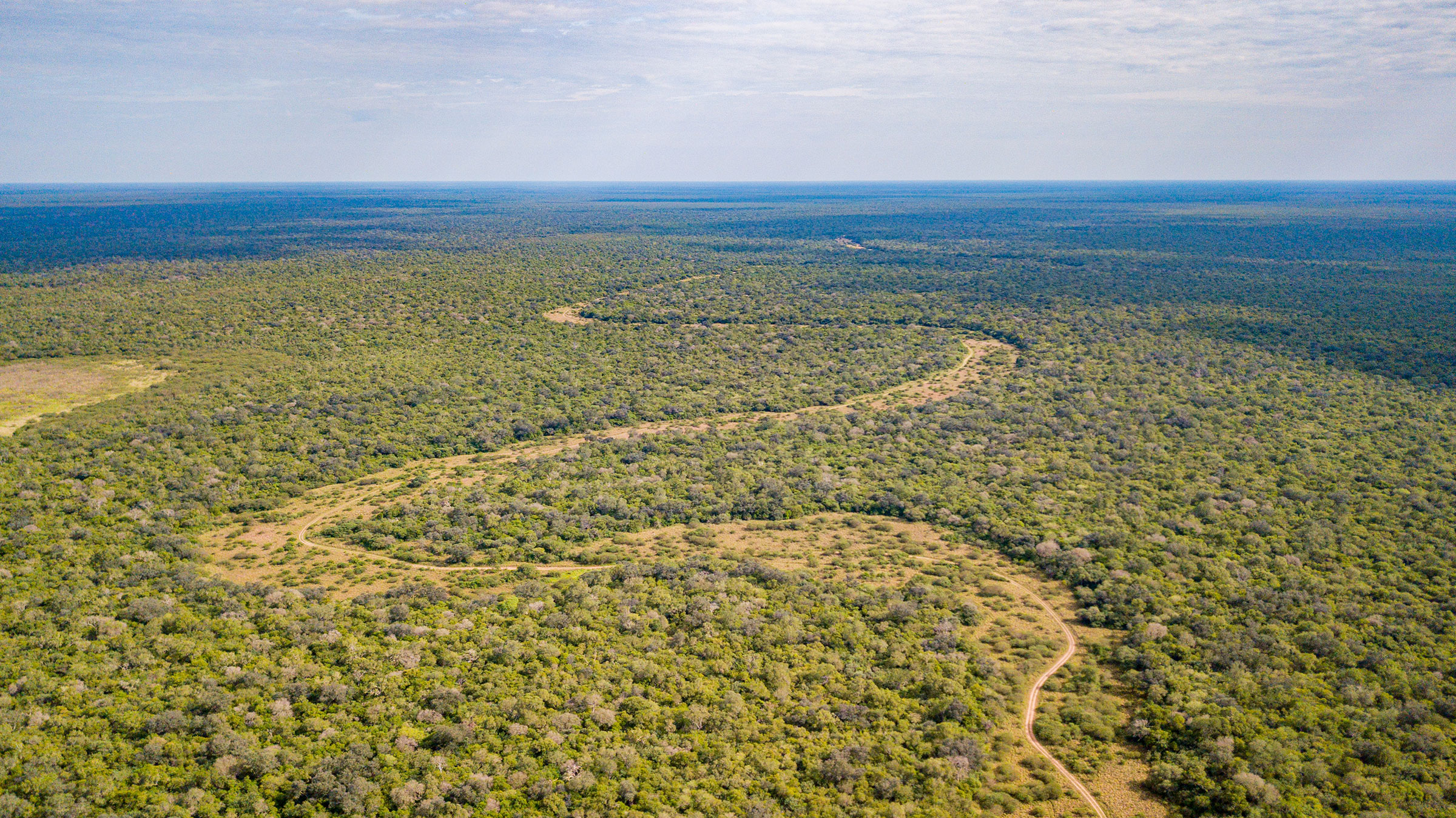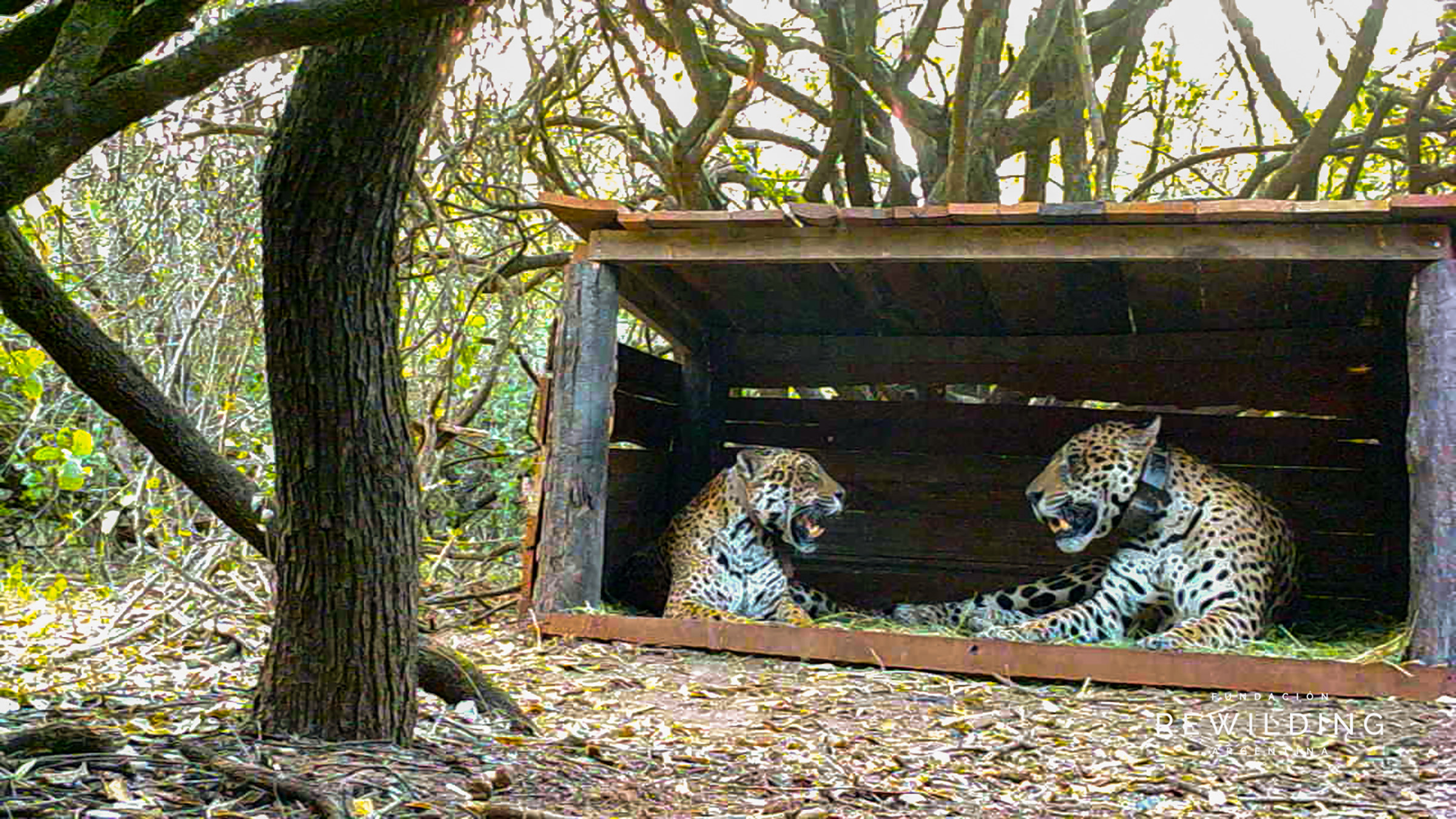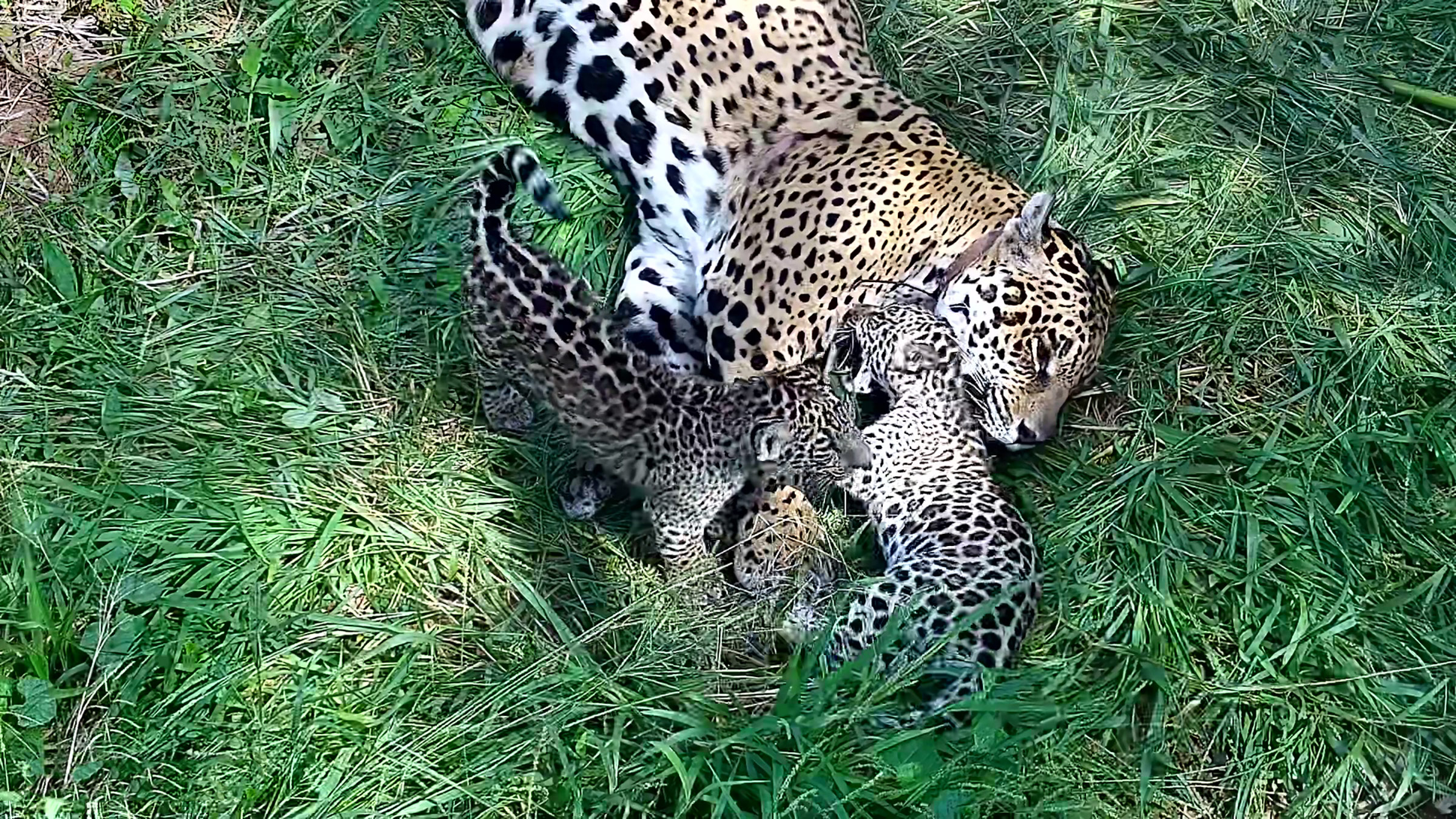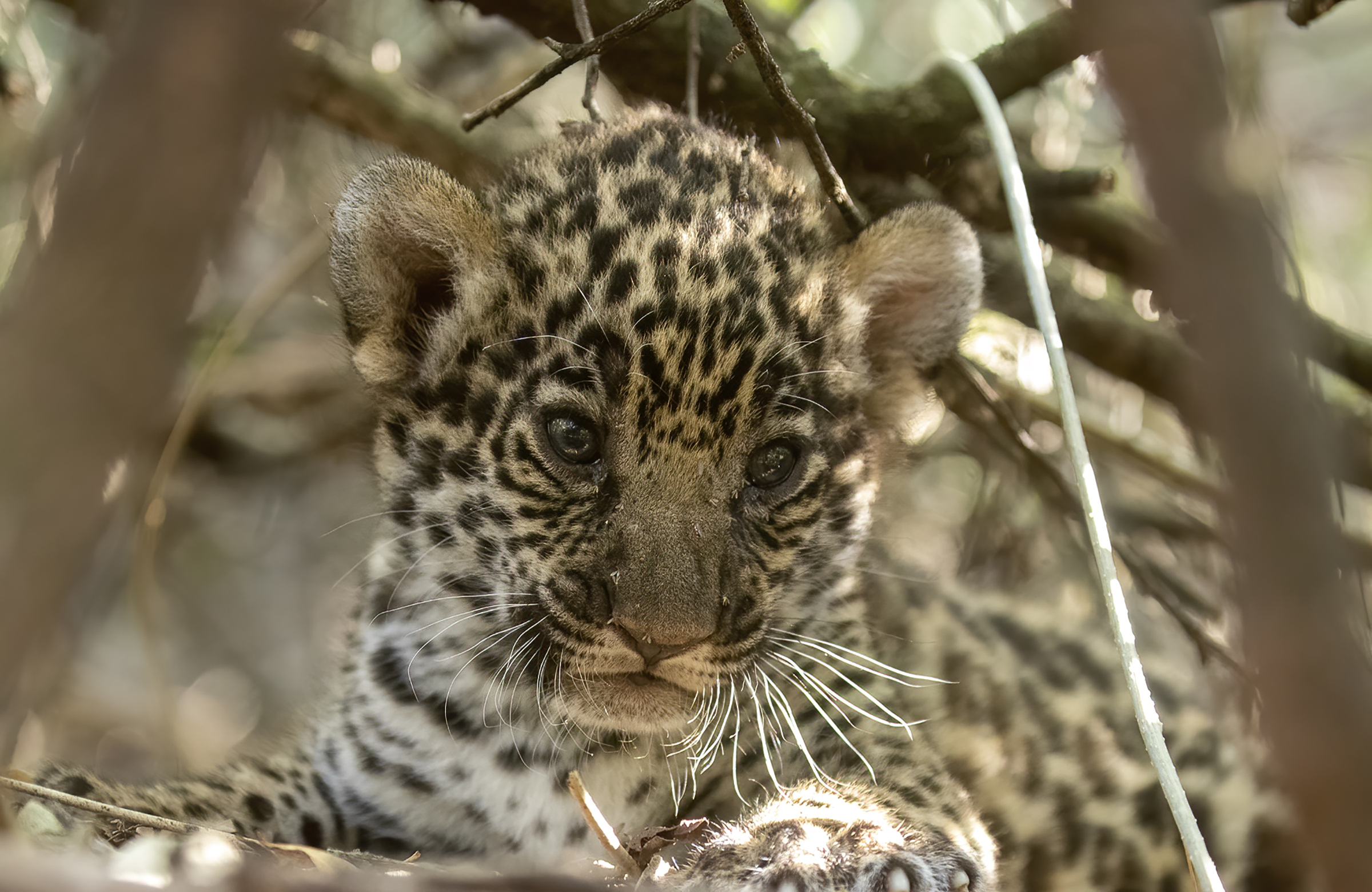Recently I visited El Impenetrable National Park in Northeast Argentina, a 500-square-mile expanse of rugged dry forest that's roughly the size of Los Angeles, Calif. El Impenetrable is part of the Gran Chaco, a sprawling region shared by Argentina, Bolivia, and Paraguay, with 3400 types of plants and hundreds of mammals. Its size and astonishing biodiversity makes the forest only second to the Amazon in South America, but could be a galaxy away, for few have ever heard of it.
Yet, for the first visitors to this emerging nature destination, and local communities working to build a regenerative economy based on wildlife watching, the national park is an island of biodiversity, a rare holdover safekeeping the Gran Chaco, one of the world’s fastest disappearing ecosystems.
For decades, ravenous, large-scale deforestation has bulldozed the way for soy plantations and cattle ranching, also leading to devastating droughts and wildfires. According to a 2019 investigation by The Guardian, 133 square miles of this region are lost every month. Stripped of their habitat and mating partners, a host of species that once held court—giant river otter, Chacoan peccary, guanaco, Pampas deer, and crowned solitary eagles—have been erased in local memory.

Most notably, El Impenetrable is also missing one key feature: female jaguars (Panthera onca) to sustain a viable population. According to Rewilding Argentina, an offspring of Tompkins Conservation, there are an estimated 10 jaguars remaining in the 1 million square-kilometer expanse of the Gran Chaco and all are male. In 2018, a ranger identified tracks of a solitary jaguar in the impossible search of a mate. His predicament reflects a harsh reality faced by many species. Jaguars have roamed the planet for 3 million years, but in the last two centuries, they lost 95% of their range in Argentina. Today there's fewer than 250 in the wild there, surviving in fragmented populations or alone. The stakes have never been higher.
Fast forward to today, and the team at Rewilding Argentina have brought back a small population of red-footed tortoises, important seed dispersers that help restore the native habitat, and are working to restore giant river otters and other species. But jaguars have proved a curious challenge. How do you restore a species when only males are left? The answer came when a captive female was brought to Impenetrable from the Jaguar Reproduction and Reintroduction Center at Ibera Park to attract the solitary wild male so he would stay safely inside park boundaries. But greater hope was sparked when remote sensor cameras showed nocturnal visits and chemistry across the fence lines.
Like most people, I can't resist a good love story. With support from Argentine National Parks and the regional government, the wild male not only mated with captive females—a first in the conservation world, they have produced cubs. Living proof that it's not too late; this new generation has the possibility to make a wild home in their natural habitat. We can reverse the mass extinction crisis.

I'm happy to share that on March 15, 2024, a rescued female jaguar from Paraguay was set free, followed in the coming months by one of those now-grown cubs. And with these two sleek and spotted beauties, the possibility to restore the Gran Chaco sparks once again to life.
Some may see active species restoration as too bold. At the age of 73, I have little to fear but inaction. As each COP conference fails to bring us to consensus, I wonder what it will take for nations of the world to commit to concrete actions to reckon with our path of destruction and prioritize the restoration of our one and only planet. The youth of the world are mad as hell and I can't blame them. Now is no time to abdicate our future.
Read More: Can 'Rewilding' Land Help Address Climate Change?
Rewilding is a radical defense of the future. It's about reckoning with the damage that we humans have done to the planet and making it whole again. Top predators, with their outsized influence on ecosystems, have the power to restore balance when present in sufficient numbers. By bringing back species and creating healthy populations, rewilding fuels ecosystem restoration, which turns out to be highly effective in mitigating climate change, and a cost-effective approach, especially in comparison to technological solutions. In addition, it creates more resilient communities by introducing restorative economies around wildlife watching.

We are not alone in this approach. The Australian Wildlife Conservancy and Foundation Conservation Carpathia have been restoring wildlife to Europe and Australia, while African Parks, working in 12 countries, are bringing back elephants and rhinos in the most challenging scenarios.
The Global Rewilding Alliance convenes 125 organizations from 70 countries actively working to restore health and abundance to our planet in ways that also provide economic opportunities to local communities. Like our offspring organizations, Rewilding Argentina and Rewilding Chile, they too need robust public support, in the form of volunteers, funding and legislation, to realize this ambitious and necessary agenda.
Bringing back jaguars is a crucial step toward mending the broken patchwork of an ecological corridor that once stretched all the way across two continents to the American Southwest. Starting in the Gran Chaco and Ibera wetlands, and fanning north through river systems, it's a logical first step in restoring the lost natural bounty of biodiversity. It's not just the right thing to do for nature. Rewilding also takes us where we need to go as humans, to act boldly and create an equitable future which not only sustains and nurtures humanity, but all living species.

More Must-Reads from TIME
- Cybersecurity Experts Are Sounding the Alarm on DOGE
- Meet the 2025 Women of the Year
- The Harsh Truth About Disability Inclusion
- Why Do More Young Adults Have Cancer?
- Colman Domingo Leads With Radical Love
- How to Get Better at Doing Things Alone
- Michelle Zauner Stares Down the Darkness
Contact us at letters@time.com